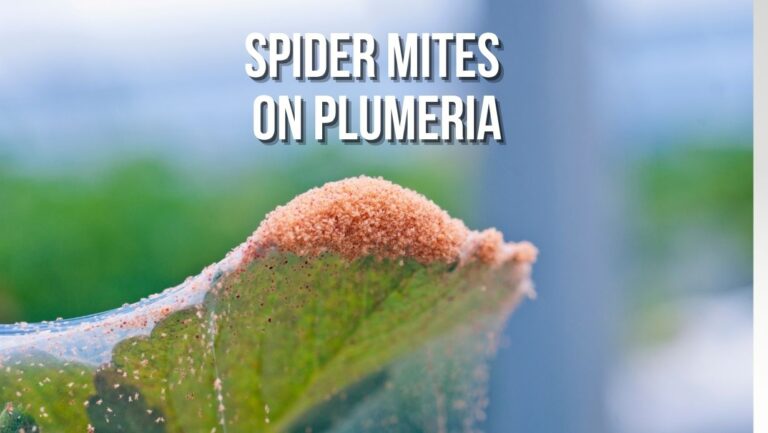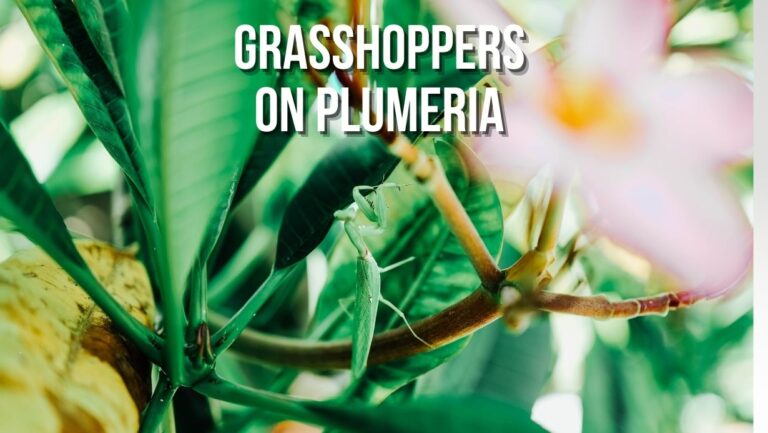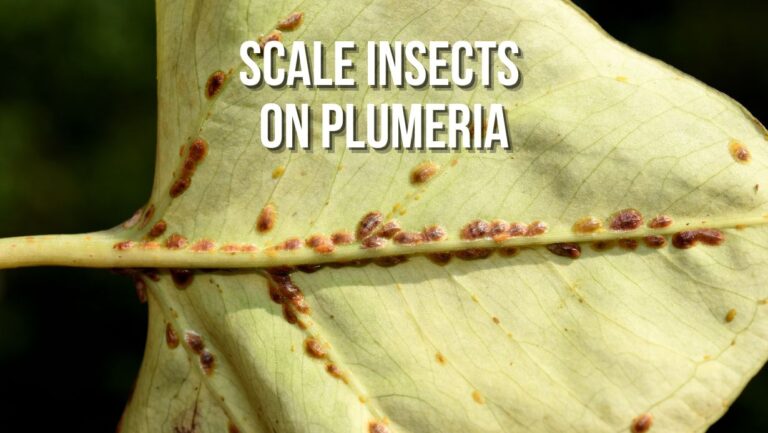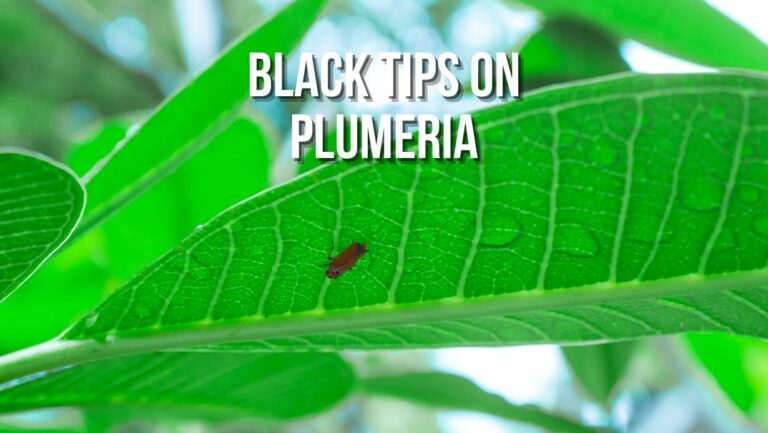
Aphids are common pests that can infest plumeria plants, causing damage to the foliage and flowers. These small, soft-bodied insects feed on the plant’s sap, leading to stunted growth, curling leaves, and the development of sticky honeydew. Understanding the causes, implementing effective treatment methods, and adopting preventive measures are essential in managing aphid infestations on plumeria.
Understanding Aphids on Plumeria
Aphids are tiny insects in various colors, including green, yellow, brown, or black. They reproduce quickly and can form large colonies on plumeria plants, particularly on tender new growth. These pests pierce the plant’s tissues and suck the sap, causing damage and weakening the plant’s overall health. Aphids are attracted to the plumeria’s lush foliage and sweet sap, making them a common nuisance for gardeners.
Causes of Aphid Infestation on Plumeria
Several factors contribute to the development of aphid infestations on plumeria plants:
- Warm Weather: Aphids thrive in warm weather, accelerating their reproductive rate. Plumeria plants in regions with extended periods of warmth are more susceptible to aphid infestations.
- Lush Growth: Plumeria plants with lush foliage and new growth provide an attractive feeding ground for aphids. The tender leaves and stems offer easy access to sap, making them prime targets for these pests.
- Lack of Natural Predators: Insufficient populations of natural predators, such as ladybugs and lacewings, can lead to unchecked aphid growth. Aphid populations can rapidly multiply when natural predators are not present in sufficient numbers.
- Overfertilization: Excessive use of nitrogen-rich fertilizers can promote excessive vegetative growth in plumeria plants. This lush growth attracts aphids, who prefer feeding on tender plant tissues.
- Ant Presence: Ants often “farm” aphids, protecting them from predators in exchange for the sweet honeydew they produce. Ants may facilitate the spread of aphids and contribute to their infestation on plumeria plants.
Treatment and Management of Aphids on Plumeria
To control and manage aphids on plumeria plants, the following treatment methods can be employed:
- Manual Removal: If the aphid population is relatively small, remove them from the plumeria plants. Use a strong jet of water from a hose to dislodge the aphids from the leaves and stems. This method can be effective in reducing their numbers.
- Insecticidal Soap: Apply insecticidal soap, specifically formulated for controlling aphids, on the affected parts of the plumeria. Follow the instructions provided by the manufacturer for proper application. Insecticidal soap works by suffocating the aphids and disrupting their cell membranes.
- Neem Oil: Neem oil, derived from the neem tree, is an organic treatment option for aphids. Dilute the neem oil according to the instructions and apply it to the affected parts of the plumeria. Neem oil repels aphids and inhibits their feeding and reproduction.
- Natural Predators: Encourage natural predators of aphids, such as ladybugs, lacewings, and parasitic wasps, in your garden. These beneficial insects feed on aphids and help control their populations naturally. You can attract them by planting companion plants that attract beneficial insects or purchasing and releasing them in the garden.
- Pruning Infested Parts: If a significant portion of the plumeria plant is infested with aphids, consider pruning and removing heavily affected stems and leaves. Dispose of the pruned material properly to prevent aphids spread to other plants.
- Systemic Insecticides: In severe aphid infestations, systemic insecticides may be necessary. These insecticides are absorbed by the plumeria plant, making it toxic to aphids when they feed on it. Consult with a professional or local garden center for appropriate systemic insecticide options and follow the instructions for safe and effective use.
Prevention of Aphid Infestation on Plumeria
Taking preventive measures can help minimize the likelihood of aphid infestations on plumeria plants:
- Regular Inspection: Regularly inspect your plumeria plants for early signs of aphid presence, such as clusters of insects, deformed leaves, or the presence of sticky honeydew. Early detection allows for prompt action.
- Watering Practices: Avoid overwatering plumeria plants, as excessive moisture can attract aphids. Provide proper drainage to prevent waterlogged conditions that can favor aphid infestations.
- Promote Beneficial Insects: Plant companion plants, such as dill, fennel, and yarrow, that attract beneficial insects like ladybugs and lacewings. These natural predators will help control aphid populations.
- Minimize Nitrogen Fertilization: Avoid excessive use of nitrogen-rich fertilizers that promote lush growth, as this can attract aphids. Instead, use balanced fertilizers appropriate for plumeria plants.
- Ant Control: Address ant infestations promptly, as ants can protect aphids from predators and facilitate their spread. Use ant baits or other appropriate methods to prevent ants from accessing plumeria plants.
- Good Garden Hygiene: Maintain good garden hygiene by removing weeds, fallen leaves, and other debris around plumeria plants. This reduces hiding places for aphids and helps create an unfavorable environment for their development.
By implementing these treatment methods and preventive measures, you can effectively manage and prevent aphid infestations on your plumeria plants, ensuring their health and vitality.
FAQs
- Can aphids spread to other plants in the garden? Yes, aphids can spread to other plants in the garden if suitable hosts are available. They can move from plant to plant or be transported by wind or insects. Regular monitoring and prompt action can help prevent their spread.
- Are aphids harmful to humans? Aphids are generally not harmful to humans. However, some people may be allergic to aphid secretions or be irritated by their presence. It’s advisable to wash fruits and vegetables thoroughly before consuming them if they have been infested with aphids.
- Can I use chemical pesticides to control aphids on plumeria? Chemical pesticides can be used as a last resort if other methods fail or if the infestation is severe. However, it’s important to carefully follow the instructions and use pesticides specifically labeled for aphid control. Minimize their use to protect beneficial insects and the overall ecosystem.
- Can aphids cause permanent damage to plumeria plants? While aphids can cause damage to plumeria plants, they generally do not cause permanent harm if promptly addressed. Plumeria plants can recover and continue to thrive with appropriate treatment and preventive measures.
- How often should I inspect my plumeria plants for aphids? Regular inspection is crucial for early detection of aphid infestations. Aim to inspect your plumeria plants at least once a week, paying close attention to new growth, leaves undersides, and honeydew or distorted foliage.




